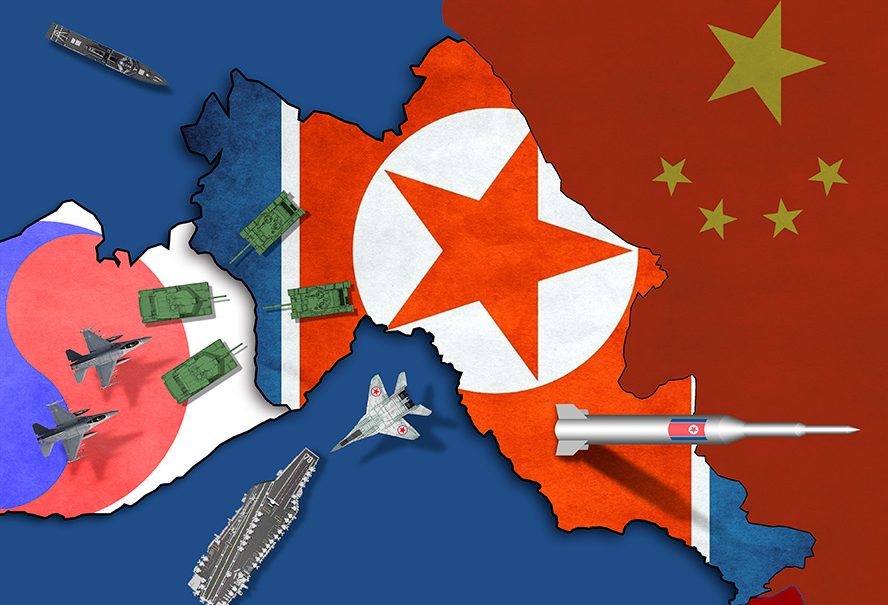
China has staked its claim in the South China Sea, North Korea is working on becoming a fully-fledged member of the nuclear club. Like it or not, are we approaching a new normal in East Asian security?
Lee Kuan Yew School of Public Policy Associate Dean and Visiting Associate Professor Francesco Mancini says North Korea's path to nuclear capability and China's extension of its backyard into Southeast Asia are not going to be reversed but probably also not pushed much further forward in coming years.
"We are approaching a new normal, says Professor Mancini.
"The South China Sea is fairly calm and the Philippines have basically dropped the issue, he says. "I'm not sure how much more reclamation China can do. The next step is when they land a fighter jet on one of those islands.
Considering North Korea, Professor Mancini, whose expertise is in studying conflicts and conflict resolution efforts, says the detente is unlikely to continue after the Olympics. "The reality is that North Korea can't turn back. Once you invested so much to develop this technology, you need to keep going until you show you have deliverable capability across continents. Once you successfully tested that, the next step is using these weapons, which would be catastrophic, he says.
Professor Mancini says it is important to remember that the United Nations Security Council approved the toughest sanctions ever against North Korea in 2017 which ratcheted up tensions, compounded by the Twitter diplomacy of US President Donald Trump, who called North Korean leader Kim Jong Un Rocket Man and saying he had a bigger "nuclear button.
President Trump's Twitter diplomacy was praised by former UN Secretary-General Ban Ki-moon in Singapore last November, when he told the Barclays Asia Forum that it was the right approach to take with the North Korean regime.
Unfortunately, the scenario now is not so different as it was before the new round of sanctions. Russia and China continue to prop up North Korea despite sanctions. The big question is the Americans. Is regime change on the table?
"The unpredictability is an issue, but I don't think we're on the brink of war, he says. "It's a roller coaster and it's very stressful for diplomats in the region. Of course they prefer stability."
Indeed, President Trump refrained from too much saber-rattling about North Korea in his State of the Union speech this year, which some pundits says was a tacit acceptance of the detente that exists.
Professor Mancini says that generally the world was more peaceful in 2017, as shown in the 2017 Global Peace Index. However, over the last decade. the world has become significantly less peaceful.
He says President Trump's Twitter diplomacy should be viewed more as playing to a domestic audience, rather than as a diplomatic strategy.
The biggest concern regionally is not Twitter, but the unpredictability of US policy, or if there even is a coherent policy, he says.
As Singapore takes the chair of the Association of Southeast Asian Nations (ASEAN) this year, Professor Mancini says it faces challenges in keeping the grouping together as regional pressures pull some members towards China.
"They will be working to keep ASEAN together. The pressure is felt, he says.